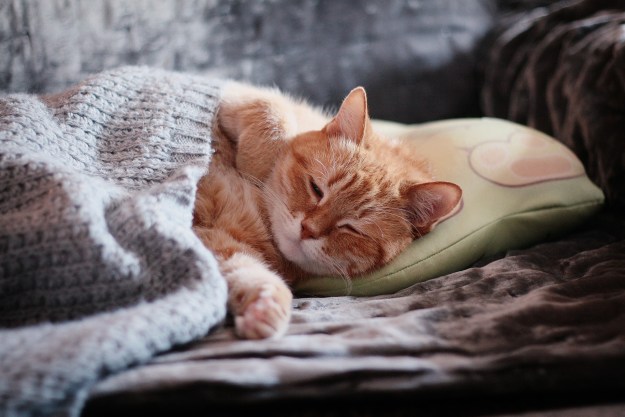Wondering, "Why is my cat eating litter?" Real talk: Cats can act strangely and unpredictably when it come to their bathroom boxes. Some cats lie in litter boxes, while other cats eat their litter. If yours is a litter eater, you’re probably wondering why. An urge to eat nonfood items, such as litter, is called pica, and the behavior is common among felines including young kittens.
Usually, eating litter a sign of a physical or behavioral problem in a feline of any age. Your best bet is to call the vet. Fortunately, pet parents can stop this common yet worrisome (and disgusting!) habit with a few simple steps.
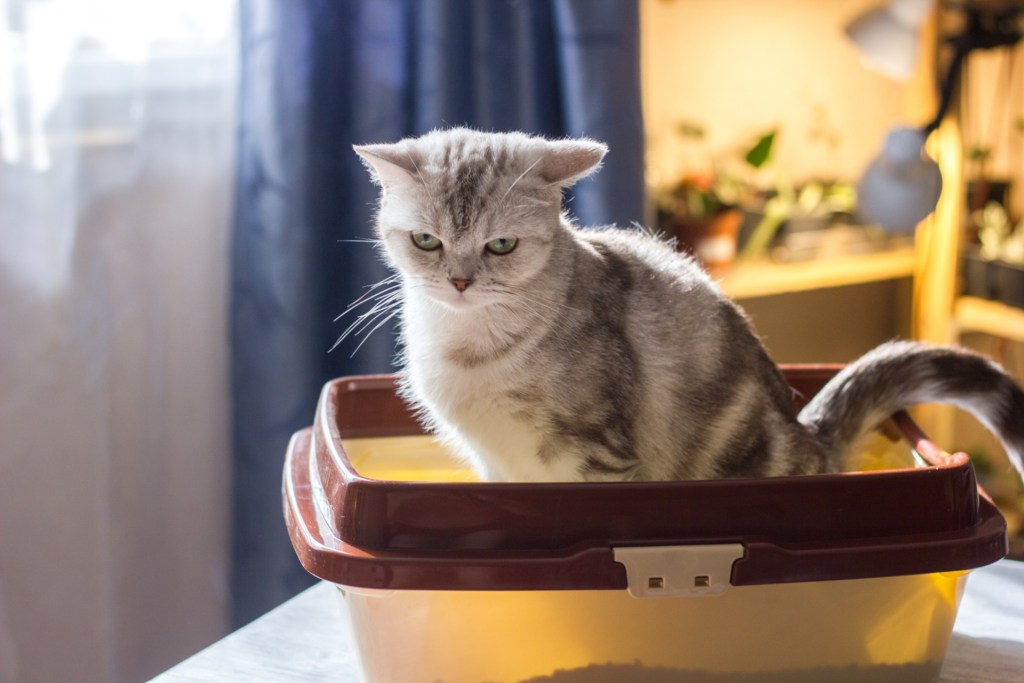
Why is my cat eating litter?
Pica
Again, pica is when a human or animal wants to eat nonfood such as paper, plastic, string, sand, or, as in this case, cat litter. If your kitten or adult cat is doing this, again, it’s often a sign of a physical or behavioral problem, so contact your veterinarian right away. Pica needs not be severe to indicate a problem.
Only a medical professional can determine whether your fur baby’s pica is a sign of a real problem or if your cat does it simply out of boredom. So make that vet appointment!
Anemia
If your cat eats their litter, it may be because of anemia, which means their body isn’t making enough red blood cells and hemoglobin. They are trying to get the vitamins, minerals, or fatty acids they’re not from food. A strong sign of anemia is in your cat’s mouth: if the gums are white, lightly colored, or bluish. Anemia can be a serious problem for cats, so if you suspect yours is anemic, take them to the vet as soon as you can.
Nutritional deficiencies
Nutritional deficiencies are common in many cats. Eating litter is actually a response to these nutritional shortfalls. Many commercial cat litters are made from clay and contain a wealth of minerals. Your cat senses this and tries to eat the litter to make up for what it is missing from their diet.
Other medical issues
This behavior could also be a sign of feline leukemia or kidney disease. To determine these diagnoses, your vet will need to analyze your cat’s complete blood count. An MRI or other imaging technique may be necessary. Again, if you are noticing that your cat is eating litter, don’t wait to bring them to a vet.
Curiosity
This reason is especially true for kittens that eat litter. Often, they don’t understand yet what it’s for, which is why it’s so important to use non-toxic, non-clumping litter for kittens as this will help prevent intestinal blockages. If your kitten is under three months of age, it’s not odd for them to eat litter. Keep an eye on your kitten and remove them from the litter box if they’re treating it as a snack, but they should eventually drop this habit.
Boredom
In some cases, cats will eat their litter if they are not feeling stimulated enough. This could be a problem if your cat is not allowed to go outside. A bored cat will start to act out and do strange behaviors to amuse itself. This type of situation is possible in all pica cases, though only a veterinarian will be able to be absolutely sure about what is going on with your kitty.
Want to find out how often you should feed your kitten? We’ve got you covered.
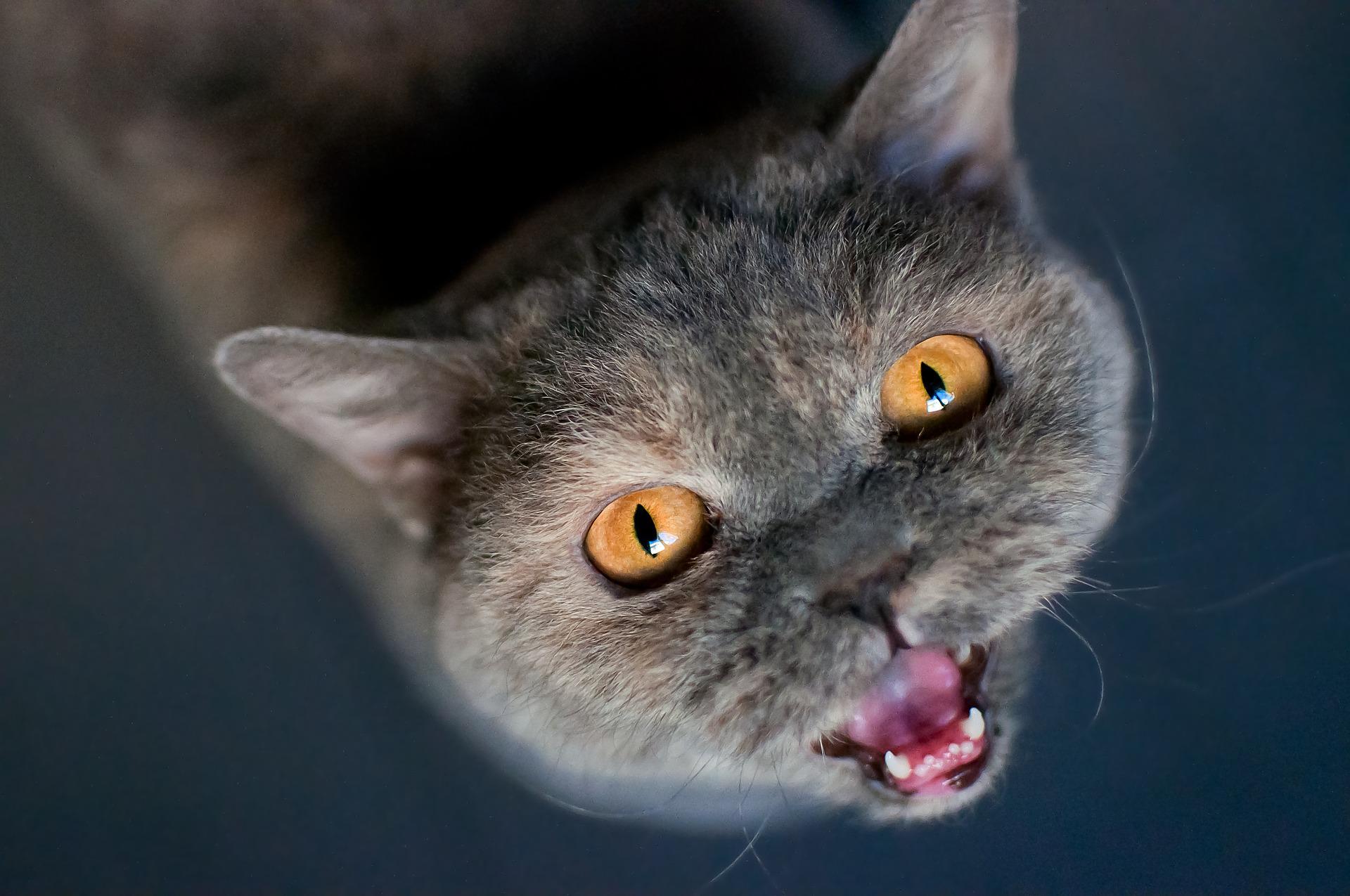
Other reasons your cat eats litter
In addition to the above reasons that may be causing your feline friend to eat its kitty litter, here are more possible reasons to consider:
- Litter consists of food-based products, such as corn and wheat
- Diabetes
- Brain tumors
- Feline immunodeficiency virus
- Stress
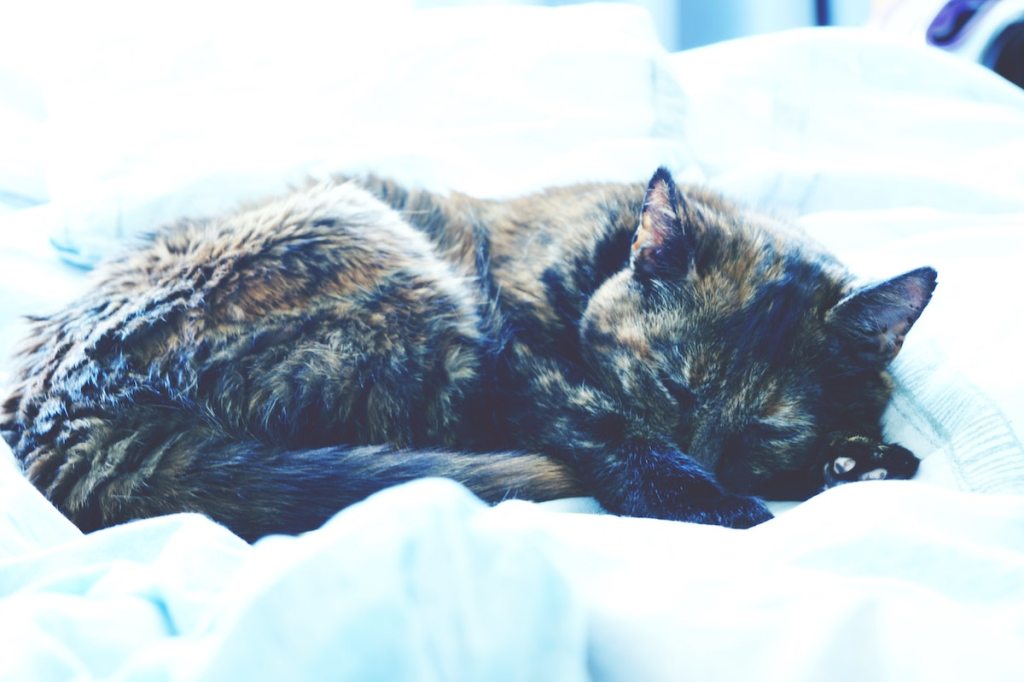
What happens if a cat eats cat litter?
Eating kitty litter isn't simply gross — it poses a risk to your feline friend, and you're right to be concerned as a pet parent. Some types of litter are more dangerous than others. Notably, clumping litter, which some find easier to scoop, contains sodium bentonite. If a cat ingests litter with sodium bentonite, the ingredient could clump in their stomach. As a result, Kitty might develop an intestinal blockage.
If your cat is consuming litter, switch to one without sodium bentonite at least until you're sure the issue is resolved. You can find the ingredients on the bag (or online listing). Your cat's vet can also point you to a safer litter option.
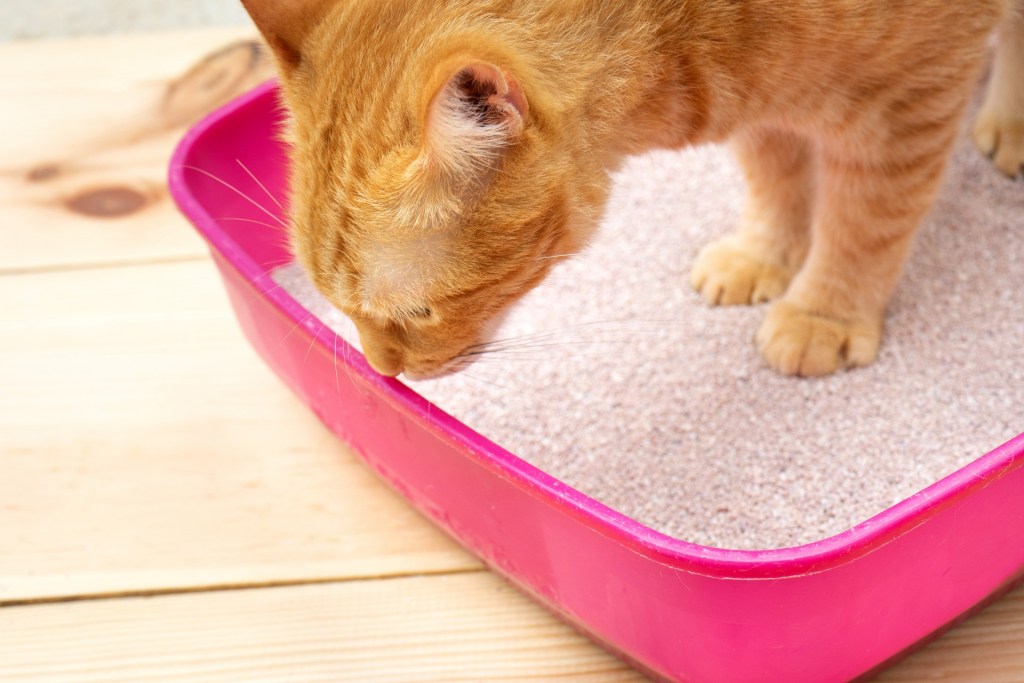
How to stop your cat from eating their litter
Take the following steps to help your cat stop the habit of eating kitty litter.
Step 1: When dealing with a behavior issue like eating cat litter, it's always smart to start with a visit to the vet to rule out any medical concerns.
Step 2: If your cat has been examined by a veterinarian and all other issues have been ruled out, your furry friend may be eating litter because of a behavioral issue. There are many types of cat litter, and you might find that switching from a clay-based variety to one made from corn, wheat, or paper could help. Experiment to see how different formulations work.
Step 3: If your cat is eating litter because they are bored, you may need to provide your furry friend more stimulation. Purchase new toys and set aside extra time from work for playing and entertaining them. Food puzzles can also be a great way to motivate your cat.
Step 4: If you notice your cat going back to the litter box to eat, direct your pet away gently with a piece of string or toy. This process may take some time and patience.
Step 5: Catnip can be a very potent ally here. Plant some fresh catnip in your yard or bring some dried leaves to your cat to help your furball to be more relaxed and at peace. This herb can also help to soothe your kitty’s digestion. Catnip is a great addition to help a bored kitty to regain the spice of life.
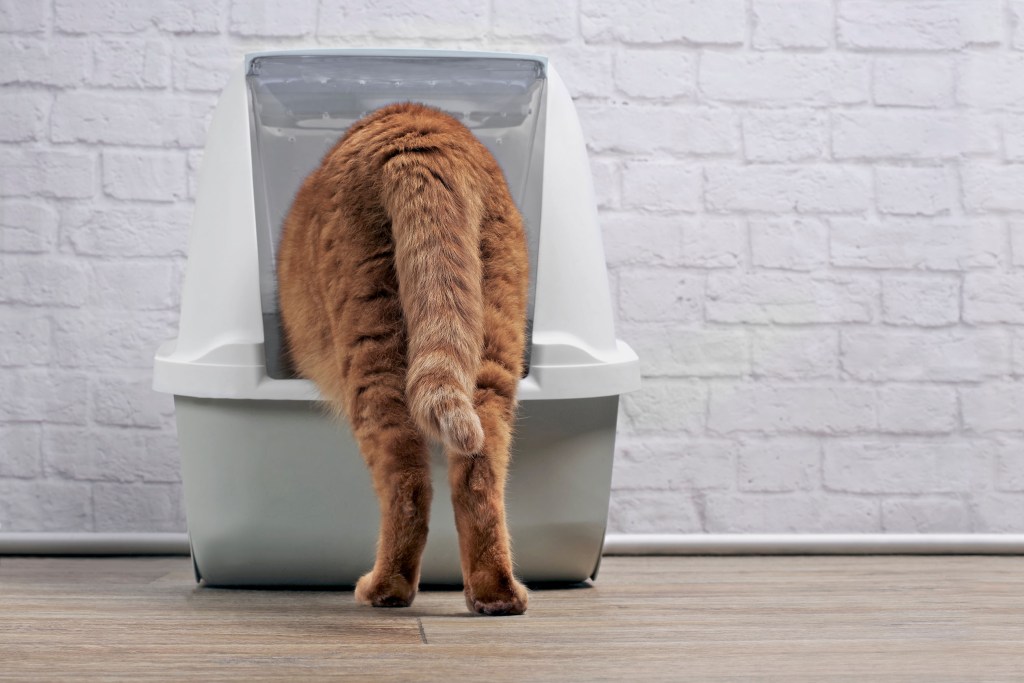
With patience and love, help your cat kick their litter-eating habit
Even experienced cat owners sometimes have trouble figuring out what is going on with their beloved cats. Vets can assist, but at a certain point, it’s important for cat owners to be proactive in ensuring their cat is healthy and satisfied. If you are trying to figure out how to stop your cat from eating litter, try to be patient and remember that even though you might not like this activity, your cat is not doing it maliciously.
Eating cat litter is often the sign of another underlying issue. It is important to take your cat to the vet for a diagnosis. With a bit of patience, love, and positive intention, you can help your cat to get over this unfortunate activity.
Editors' Recommendations
- Wondering why cats chirp? Fascinating reasons why your cat chirps at birds (and you)
- How to cat-proof your balcony before the unthinkable happens
- There’s a totally normal reason cats throw up after eating grass – here’s why
- How to keep stray cats out of your yard respectfully and humanely
- Your cat trilling is actually a good thing – here’s why



